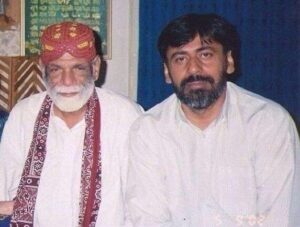Strengthen Family Bonds
Introduction
Family bonds are the foundation of our personal and social lives, offering support, love, and a sense of belonging. However, like any relationship, they require effort and understanding to maintain and strengthen. In today’s fast-paced world, where time is often a luxury, maintaining these bonds can be challenging. This blog explores the understanding, management, and remedies for strengthening family bonds, highlighting a unique solution: The Ultimate Remedy, an audio therapy program.
Introduction to Family Bonds
Family bonds are the emotional connections between family members. These bonds are crucial for emotional support, psychological well-being, and overall happiness. However, due to various reasons, these bonds can weaken over time, necessitating conscious efforts to strengthen them.
Understanding Family Bonds
Strong family bonds are characterized by love, trust, understanding, and support. Understanding these bonds involves recognizing their importance in our lives and the roles each family member plays. It’s about empathy, communication, and the shared experiences that bring us together.
Causes of Weakened Family Bonds
Several factors can lead to weakened family bonds, such as:
- Busy lifestyles and lack of quality time together.
- Miscommunications and unresolved conflicts.
- Generational gaps and differing values or beliefs.
- External pressures, such as work or social obligations.
Identifying these causes is the first step towards addressing and resolving them.
Management of Family Relationships
Strengthening family bonds involves:
- Prioritizing family time and creating opportunities for shared experiences.
- Open and honest communication to resolve conflicts and misunderstandings.
- Mutual respect and understanding of individual differences.
- Engaging in activities that all family members enjoy.
These practices help create a stronger, more cohesive family unit.
The “Ultimate Remedy” An Alternative Approach
Amidst traditional methods of strengthening family bonds, The Ultimate Remedy offers a novel approach. This audio therapy program uses the power of sound and intention to enhance family relationships.
How to Use The Ultimate Remedy
- Download the Audio: Access The Ultimate Remedy audio from our website. Links are provided for easy download.
- Listen Together: Follow the instructions for listening to the audio. This can be a shared family activity, enhancing its impact.
- Support and Testimonials: For guidance, contact help@mastmasthealers.com. Testimonials from other families can provide insight and encouragement.
Why It Works
- Therapeutic Sound: The audio employs specific sound frequencies known for promoting relaxation and reducing stress.
- Collective Intention: Listening as a family creates a shared experience and intention, strengthening the emotional bond.
Happy Patients
Years since day one
%
Satisfaction
Testimonial
How to Listen to the Ultimate Remedy:
Download the Ultimate Remedy audio from our website or app. It’s free and accessible to all.
- Choose a quiet, comfortable space where you won’t be disturbed.
- Close your eyes and visualize yourself in the presence of your higher power or the essence of the universe.
- Listen to the audio with great concentration and closed eyes.
- After the audio is finished, open your eyes and take half a glass of water.
- Close your eyes again and say “your name” or a word that represents your belief (such as “God”, “Universe”, or “Love”) three times in your heart.
- Drink the water with closed eyes in three sips.
- For optimal results, it’s recommended to listen to the Ultimate Remedy three times a day (morning, evening, and before sleeping) for seven consecutive days.
About the Creator – Syed Safdar Hussain Bukhari
Introduction and Early Life
Syed Safdar Hussain Bukhari, also known as Kakian Wali Sarkar, was a unique example of kindness, devotion, and tenacity. Born on May 6th, 1940, he dedicated his life to serving humanity and providing relief to those suffering from various ailments.

Social Work and Spiritual Journey
Between 1960-1980, he engaged in social work by undertaking road repairs, establishing schools, and arranging medical supplies in Lilla Town. In 1990, he left his ancestral home and family wealth to move to Lahore, where he comforted the depressed and saddened through mystic dance and music.
The Ultimate Remedy
In 1998, Baba Bukhari’s research led to the discovery of “The Ultimate Remedy,” a blessed audio that he believed could cure physical, psychological, spiritual, and supernatural problems. The remedy involved listening to the audio three times a day for seven consecutive days, followed by a specific water ritual. This method claimed to cure various ailments, including coronavirus, AIDS, cancer, drug addiction, worldly problems, and psychological issues.
Legacy and Death
Baba Bukhari’s research and unconditional love left a lasting impact on humanity, providing positive thinking, peace of mind, health, fearless life, and an example of love and compassion. He passed away on February 8th, 2005, leaving behind a legacy of healing through “The Ultimate Remedy.”

His spiritual successor is Syed Baba Jaan
According to Baba Bukhari (RA), his spiritual successor is Mr. Shakir Uzair, also known as Syed Baba Jaan . As the chosen heir to Baba Bukhari’s spiritual legacy, Syed Baba Jaan carries forward the teachings and practices that have been passed down through generations. Dedicated to serving humanity and promoting healing, Mr. Shakir Uzair continues to spread the message of love, compassion, and the transformative power of the Ultimate Remedy to help countless individuals in their journey towards holistic wellness and personal growth.

